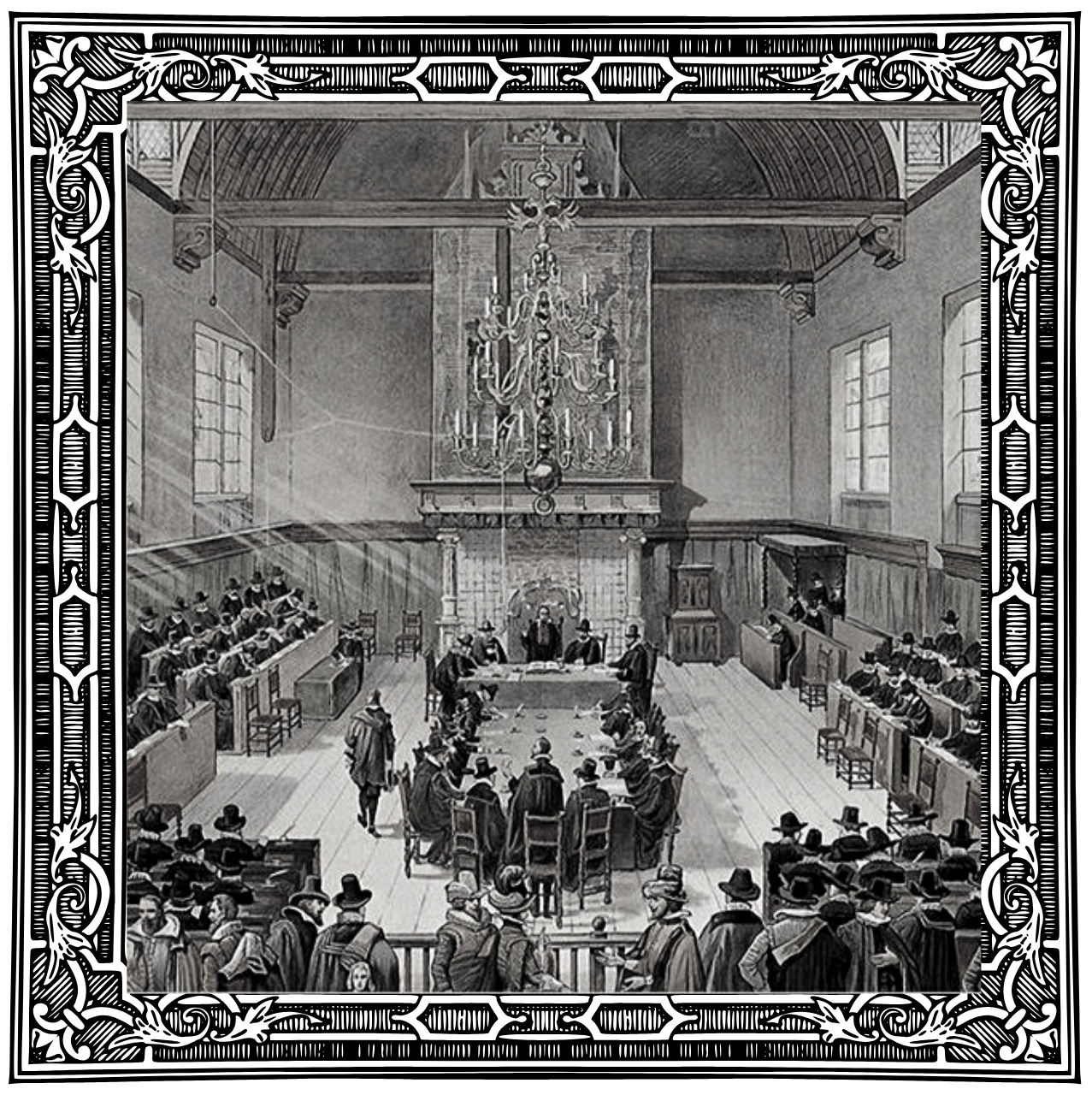God saves sinners. That’s the message of the Bible. Amen? This reality must never grow old and dull to us. it must lead us to vitality in the Christian life! God possesses aseity as self-sufficient and self-satisfied as Father, Son, and Holy Spirit. Yet to think he deigns and delights to save sinners is a thought that should never be far from our minds and hearts! That the immortal God saves mortal human beings! The infinite God saves finite creatures! “For surely it is not angels that he helps, but he helps the offspring of Abraham” (Heb. 2:16). What a God! He deserves our praise.[1] There’s a double reason for praise: in his wisdom and power the kind of people God uses are foolish men[2] using the method of preaching, to tell the message of a crucified Savior.
- The man is weak. “God has exhibited us apostles as last of all, like men sentenced to death, because we have become a spectacle to the world, to angels, and to men” and that “we are fools for Christ’s sake” (1 Cor. 4:9, 10). In contrast to the strong and honorable Corinthians Paul said “we are weak…held…in disrepute…we hunger and thirst, we are poorly dressed and buffeted and homeless, and we labor, working with our own hands” (1 Cor. 4:10–12). In the world the apostles were “reviled…persecuted…slandered” and were “like the scum of the world, the refuse of all things” (1 Cor. 4:13).
- The method is weak: preaching. Enough said!
- The message is weak: “For the word of the cross is folly to those who are perishing” (1 Cor. 1:18 cf. vv. 21, 23, 25). This message is in contrast to what calls “the wisdom of the world” (v. 20 cf. v. 21). The wise scribes were full of this wisdom (v. 20). Wise “debater[s] of this age” were full of it (v. 20). Yet, “the world did not know God through wisdom” (v. 21). The message of Christ and his cross was weak when measured by the earthly standards of signs and wisdom. Hence, it was “a stumbling block to Jews and folly to Gentiles” (v. 23).
God in his wisdom and in his power set it up this way so that we would praise him for his wisdom and praise him for his power. I want to exhort you to praise your God for his saving sinners by the means of men. But I also want to turn your attention to 2 Corinthians 4:1–12 to investigate the kind of people God uses. Be encouraged whether you’re an official servant in your congregation, thinking of serving, or thinking you’re the last person to serve: God uses humans. He can use you! What follows is not to be a technical exegesis, but my attempt to encourage you with two points and then exhort you with two points to serve in some capacity or another in your local congregation.
Know that God Uses the Means of People
Let me first encourage you. The kind of people God uses are people. I flows better to say “the means of men” but the “men” can be specific to males or generic of all people. Unfortunately our English language doesn’t have the range of German, where you can speak of mann, menschen, and Menschheit. So I’ll use people. We read in 2 Corinthians 4:1: “Therefore, having this ministry by the mercy of God.” “This ministry” is what was described in chapter 3. New Covenant ministry is described in such lofty terms. It’s a ministry of the Spirit not merely of the letter (3:6). It gives life not death (3:6). There’s more glory than even that on Moses’ face (3:7–11). It’s a ministry of righteousness not of condemnation; of liberty because it lifts the veil from the heart of the sinner. “Having this ministry” New Covenant ministers are greater than Moses!
How so? “By the mercy of God.” This shows us that it’s nothing God of necessity must do, but that he has chosen to do so in his compassion towards sinners. Heinrich Bullinger once wrote in his Second Helvetic Confession, “It is true that God can by His power, without any means, take unto Himself a church from among men, but He had rather deal with men by the ministry of men.” (Ch. 18). It’s by “mercy” that we have “this ministry.” In the words of P.E. Hughes, “Paul is a minister, not a master; a bond-servant, not an ecclesiastical lord.”[3]
As such a minister he could say, “For what we proclaim is not ourselves, but Jesus Christ as Lord” (v. 5). All give an “amen” to that. But note: he continues with this amazing statement: “with ourselves as your servants for Jesus’ sake” (v. 5). The message of Christ comes through the means of a servant for Christ. It’s the same for all who serve in any capacity: God uses you.
Know that God Uses Frail People
Let me encourage you with a second consideration: The kind of people God uses are frail people. “But we have this treasure in jars of clay” (v. 7). The “treasure” is “the light of the knowledge of the glory of God in the face of Christ” (v. 6). Notice how he speaks of the “gospel” (v. 3), which he goes on to define even further as “the light of the gospel of the glory of Christ, who is the image of God” (v. 4). Then he simply speaks “proclaim[ing]…not ourselves, but Jesus Christ as Lord” (v. 5 ). Then comes this amazing statement: “For God, who said, ‘Let light shine out of darkness,’ has shone in our hearts to give the light of the knowledge of the glory of God in the face of Jesus Christ” (v. 6).
Right after this he says, “But we have this treasure in jars of clay” (v. 7). Why does he speak this way? Paul’s opponents were those he sarcastically called ὑπερλίαν ἀποστόλων, the “super-apostles” (11:5; 12:11). They made fun of Paul’s bodily appearance and speech (10:10 cf. 10:1; 11:6; 12:7). Like ancient rhetoricians, their bodies were imposing; so Paul says we are like earthen vases that are frail. I think Paul is playing up our weakness because it magnifies the power and grace of God: “For when I am weak, then I am strong” (12:10).
What are these “jars of clay”? The ancient historian, Plutarch (46–120), described the victory procession of Lucius Aemilius Paullus Macedonicus after he defeated the Macedonians at the Battle of Pydna in 168bc. He said, “After the waggons laden with armour there followed three thousand men carrying coined silver in seven hundred and fifty vessels, each of which contained three talents and was borne by four men.”[4]
What’s the point of this illustration? John Owen (1616–1683) said it like this: “The ministry whereby the word is conveyed unto us is but a ‘vessel;’ and ministers are but ‘earthen vessels,’—frail, weak, brittle, and it may be sometimes defiled. But still, in and by them the word of God is a ‘treasure,’ a heavenly treasure, enriching our souls.”[5] So this means that a pastor, an elder, or anyone who serves in some way in the church is a sinner? This means they make mistakes? Sounds like a good reason not to listen to them! Again, Owen:
God hath been pleased to ordain that the word should be dispensed unto us by weak, sinful men like ourselves; whence it unavoidably follows that they may, and probably sometimes will, mix some of their infirmities with their work. To except, therefore, against this disposition of things, is to except against the wisdom of God, and that especial order which he hath designed unto his own glory, 2 Cor. iv. 7.
He then used this great illustration:
In a pipe which conveys water into a house there may be such a flaw as will sometimes give an entrance unto some dust or earth to immix itself with the water; will you therefore reject the water itself, and say, that if you may not have it just as it riseth in the fountain you will not regard it, when you live far from the fountain itself, and can have no water but such as is conveyed in pipes liable to such flaws and defects? Your business is to separate the defilement and use the water, unless you intend to perish with thirst.[6]
Know that God Uses Godly People
Now let me exhort you to be the kind of servant God uses, exemplified in Paul. The kind of people God uses are godly people. Note how in contrast to the false apostles, Paul says, “But we have renounced disgraceful, underhanded ways. We refuse to practice cunning or to tamper with God’s word, but by the open statement of the truth we would commend ourselves to everyone’s conscience in the sight of God” (v. 2).
But here’s where we come up against a common place in our Protestant tradition. “I thought it didn’t matter how holy the minister was because the Word is powerful?” Paul says here that through him as a minister the “God who” once “said, ‘Let light shine out of darkness,’ has shone in our hearts to give the light of the knowledge of the glory of God in the face of Jesus Christ” (v. 6). In the first creation God created by his fiat, he creative word; but now in his work of re-creation in the lives of sinners that Word has been made flesh in Jesus Christ and is proclaimed by a man of flesh. Yet it’s God who powerfully works:
Wherefore when this Word of God is now preached in the church by preachers lawfully called, we believe that the very Word of God is proclaimed, and received by the faithful; and that neither any other Word of God is to be invented nor is to be expected from heaven: and that now the Word itself which is preached is to be regarded, not the minister that preaches; for even if he be evil and a sinner, nevertheless the Word of God remains still true and good. (Second Helvetic Confession of Faith, ch. 1)
But this doesn’t negate the necessity of holiness in a servant. Paul says his methods and motives in ministry are godly ones. He tells Timothy elsewhere to guard his doctrine and life because both are life giving to himself and his hearers (1 Tim. 4:16). In the oft-quoted words of Robert Murray McCheyne (1813–1843), “The greatest need of my people is my personal holiness.” But you may not know that he also said it more forcefully like this:
Study universal holiness of life. Your whole usefulness depends on this, for your sermons last but an hour or two; your life preaches all the week. If Satan can only make a covetous minister a lover of praise, of pleasure, of good eating, he has ruined your ministry.
Get your texts from God—your thoughts, your words, from God. In great measure, according to the purity and perfection’s of the instrument, will be success. It is not great talents God blesses so much as great likeness to Jesus. A holy minister is an awful weapon in the hand of God. A word spoken by you when your conscience is clear, and your heart full of God’s Spirit, is worth ten thousands words spoken in unbelief and sin.
Know that God Uses Sacrificial People
Let me give you a second exhortation: The kind of people God uses are sacrificial people. Back to that illustration of “treasure in jars of clay” (v. 7). I told a brother recently that in our terminology this means we are Dixie cups. We’re made to be used, thrown away, and replaced! How so?
First, we sacrifice ourselves so that God is glorified: “to show that the surpassing power belongs to God and not to us” (v. 7). You don’t exist for yourself as a Christian! You belong, body and soul, both in life and in death, to your faithful Savior Jesus Christ, in the memorable words of the Heidelberg Catechism (Q&A 1).
Second, we sacrifice ourselves so that others are benefited. Paul goes on to recount his life as an apostle: Eddie Bauer edition SUV with leather interior, private chauffer, private body guard, front parking space at church…NO! He says, “We are afflicted in every way, but not crushed; perplexed, but not driven to despair; persecuted, but not forsaken; struck down, but not destroyed” (vv. 8–9). And then notice this: “always carrying in the body the death (νέκρωσιν; process of “dying”) of Jesus, so that the life of Jesus may also be manifested in our bodies. For we who live are always being given over to death for Jesus’ sake, so that the life of Jesus also may be manifested in our mortal flesh. So death is at work in us, but life in you” (vv. 10–12).
What a God! Amen? What a God! The kind of people God uses in his wisdom and power are just like you. Now go; serve!
[1] This address was first given at a leadership training seminar on August 15, 2015.
[2] I am bound by ordination oath that the ministry of preaching is restricted to men. See my With Heart and Mouth: An Exposition of the Belgic Confession (Grandville: Reformed Fellowship, 2008), 409–410.
[2] Hughes, 131.
[3] Life of Aemilius, 32.
[4] Owen, Hebrews, 4:557–558.
[5] Owen, Hebrews, 4:558.







